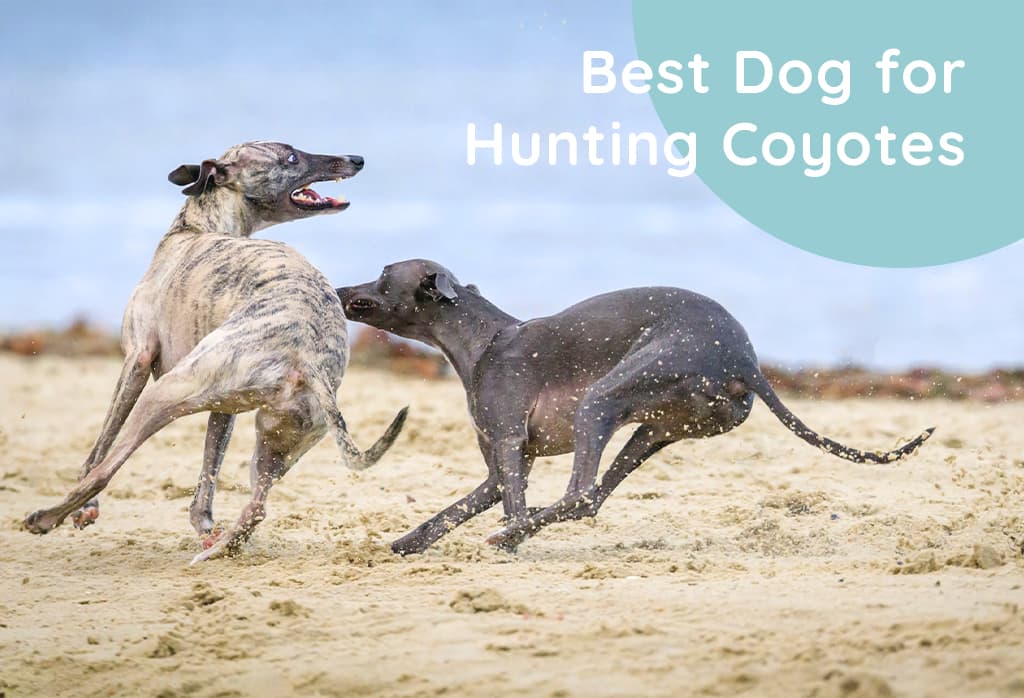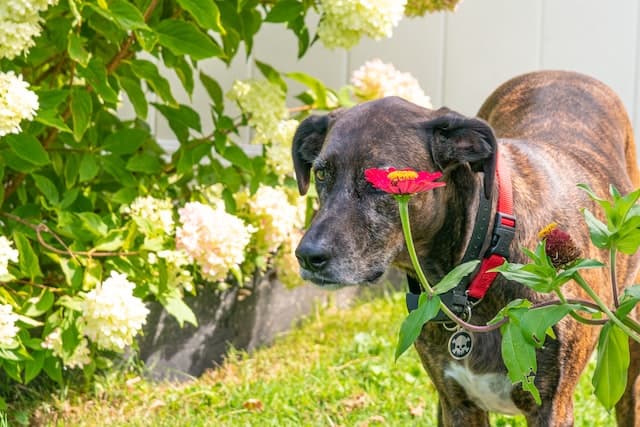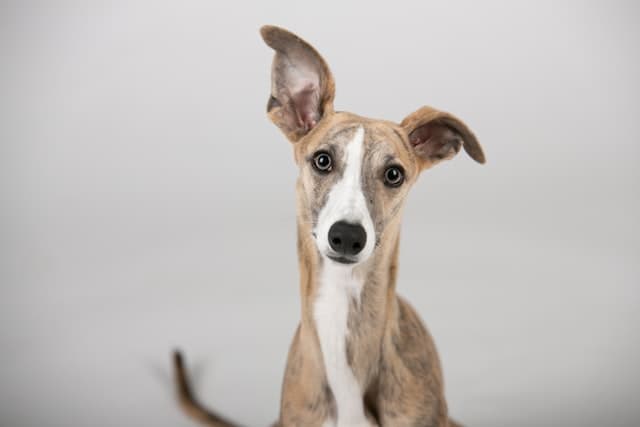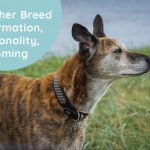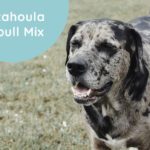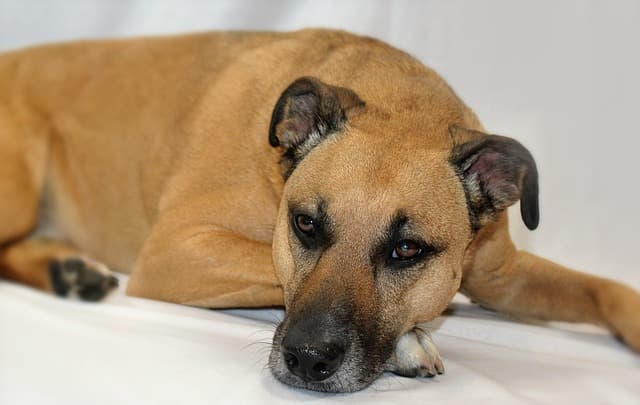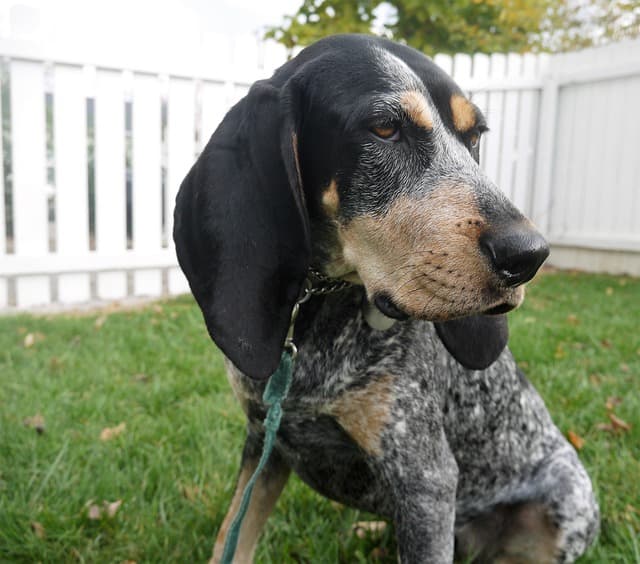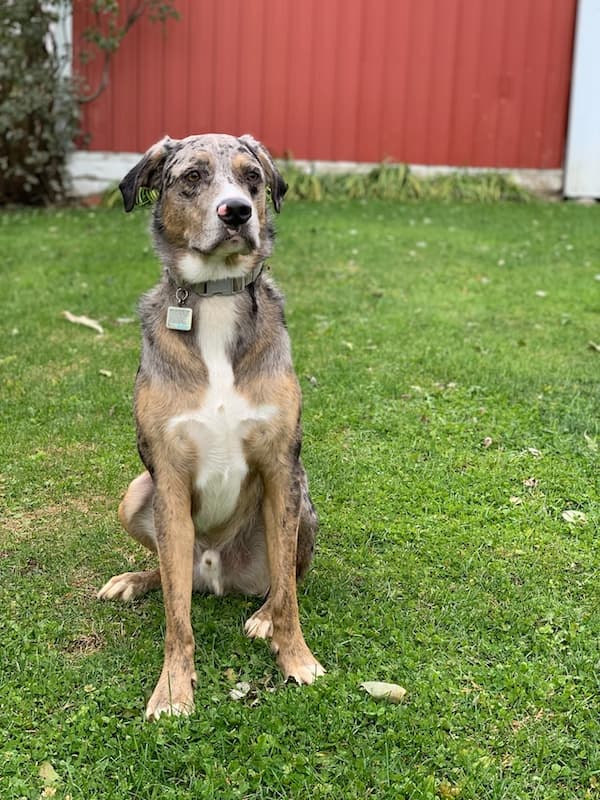So, you’re looking for the best dog to help you hunt down some pesky coyotes? Well, you’ve come to the right place.
It turns out, coyotes are pretty clever creatures, and they can cause some real trouble for our furry friends, livestock, and even us humans.
Lucky for us, there are some amazing dogs out there that have the skills and instincts to help track down these wily critters.
Plott Hound
These guys are like the underdogs of the hunting world, but they shouldn’t be underestimated.
They’re super loyal and courageous, which is perfect for hunting big animals like boar and, you guessed it, coyotes.
Their history goes way back, and they’ve been known for their hunting skills since the 1700s.
Greyhound
These dogs are like the cool kids in school who are also secretly really smart.
They might be known for racing and looking sleek, but they’re also amazing hunters.
Greyhounds are the fastest dogs in the world, so they can definitely keep up with coyotes.
They’re a little shy, though, so they might need a more aggressive buddy to help them finish the job.
Mountain View Cur
These dogs are the perfect blend of brains and brawn.
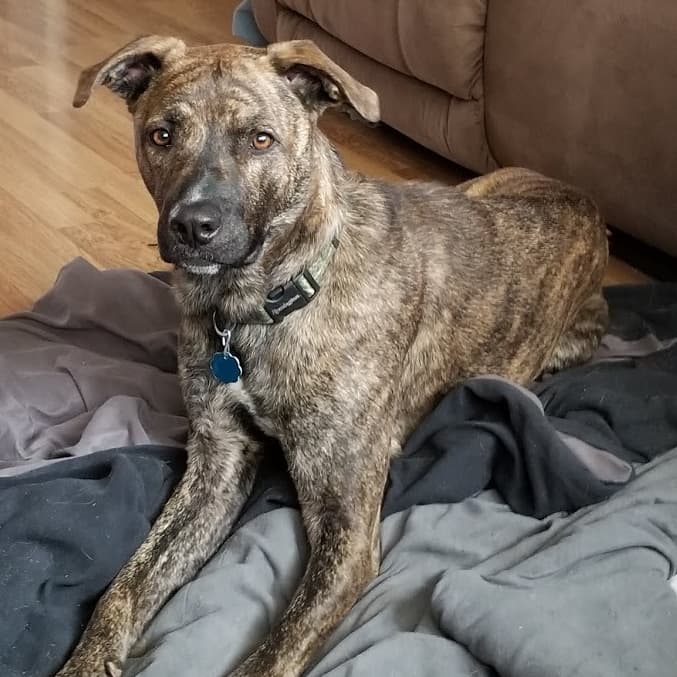
Image Source: ThoHug
They were developed in the late ’80s in New York, and they’ve got a ton of self-control, making them great for hunting.
They’re versatile, too – they can hunt coyotes, raccoons, pheasants, wild boar, and even bobcats.
Plus, they’re super protective and great with kids, so they’ll fit right into your family.
Black Mouth Cur
This all-American breed is a top choice for hunting raccoons, but they’re also amazing for “treeing” coyotes.
They’re smart, strong, and easy to train, and people who hunt with them usually don’t want any other dog by their side.
They’ve got a calm temperament and they’re super loyal, making them great companions both on and off the hunting trail.
Bluetick Coonhound
These dogs are like the ultimate detectives of the hunting world.
They’ve got an amazing sense of smell and a relentless drive to follow a scent, which makes them perfect for hunting coyotes.
They’re also pretty chill and friendly, so they’ll make a great addition to your family.
Redbone Coonhound
Redbone Coonhounds are known for their striking looks and their fearless personalities.
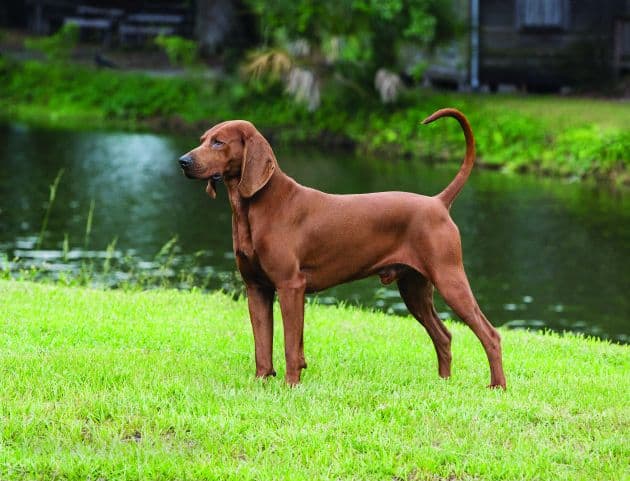
Image Source: 127177p
They’re great at tracking game in all kinds of terrain, and they’ve got the endurance and determination to keep going no matter what.
These guys will be right there with you when you’re out hunting coyotes.
American Staghound
You know how sometimes you just know something is meant for a specific purpose?
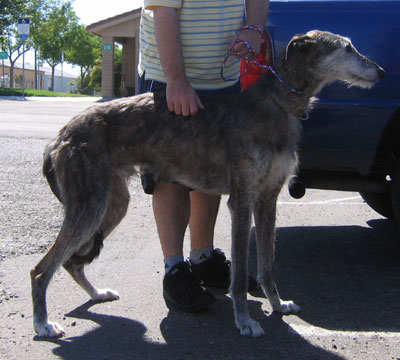
Image Source: Nelsonismyhero
That’s the American Staghound when it comes to hunting coyotes.
These guys were literally bred for this.
They’re a mix of Scottish deerhound, greyhound, and a few other breeds, which gives them incredible eyesight and the stamina to keep going.
This dog is like a superhero when it comes to hunting predators like coyotes and wolves.
They’ve got the speed and strength to keep up with these clever critters, and they’ll never let you down.
Just a heads up, though – these dogs aren’t great with non-canine pets, so you might want to keep your hamster in a separate room.
Catahoula Leopard Dog
These dogs are like the secret agents of the hunting world.
They’re super smart, adaptable, and versatile, which makes them perfect for all kinds of hunting, including coyotes.
Their name comes from their unique coat, which can have a leopard-like pattern.
Plus, they’ve got the brains to match their beauty – they can problem-solve like no other and are super focused when on the hunt.
Qualities to Look for in a Coyote Hunting Dog
Speed and Stamina
Coyotes are fast, so you’ll need a dog that can keep up with them.
Dogs with great speed and stamina are crucial for successful coyote hunting.
Make sure your canine companion can run long distances and maintain a good pace to track down those sneaky critters.
Keen Senses
A dog with sharp senses, especially sight, and smell, is a huge asset when hunting coyotes.
A keen sense of smell will help your dog track down the coyote’s scent, while good eyesight will allow them to spot the coyote from a distance.
Intelligence and Trainability
A smart dog that’s easy to train is a must for coyote hunting.
You want your dog to be able to understand and follow your commands, as well as think on their feet when they’re out in the field.
Bravery and Determination
Coyotes are known for being wily and resourceful, so you’ll need a dog that’s brave and determined enough to keep chasing them down.
A courageous dog won’t be intimidated by a coyote’s clever tricks and will remain focused on the hunt.
Compatibility with Other Dogs
When hunting coyotes, it’s often beneficial to work with more than one dog.
Make sure your chosen breed gets along well with other dogs, as teamwork can be essential to a successful hunt.
Training Tips for Coyote Hunting Dogs
Start Early
The earlier you start training your dog, the better.
Begin with basic obedience training and gradually introduce hunting-specific skills as your dog grows and develops.
Consistency is Key
Be consistent with your training methods and commands.
This will help your dog understand what you want from them and make it easier for them to follow your instructions.
Use Positive Reinforcement
Reward your dog with praise, treats, or playtime when they perform a desired behavior.
This will encourage them to repeat the behavior in the future.
Practice Patience
Training a dog for hunting takes time, so be patient and don’t expect overnight results.
With dedication and consistency, your dog will become a skilled coyote hunter.
Work with a Mentor
If you’re new to hunting or training dogs, consider working with an experienced mentor.
They can provide valuable guidance and help you avoid common mistakes.
Other Canine Breeds for Hunting Coyotes:
So, we’ve already talked about some pretty amazing breeds that are excellent for hunting coyotes.
But, you know what? There are even more breeds out there that have some serious potential.
Let’s take a look at a few other canine stars that might just have what it takes to help you in your coyote-hunting adventures.
Labrador Retriever
You’ve probably heard of Labradors as being great family pets, but did you know they also have a history of being excellent hunting companions? With their strong work ethic and impressive sense of smell, Labradors can be a fantastic addition to your hunting pack.
They’re trainable, friendly, and have the energy to keep up with even the most determined coyotes.
Beagle
I know, I know – Beagles are probably best known for their rabbit-hunting abilities, but hear me out.
These small dogs have a powerful nose and a fearless spirit that can make them surprisingly effective at tracking down coyotes.
Beagles are also very social animals, so they’ll appreciate being part of a larger hunting pack.
Just keep in mind that their small size might make them more vulnerable to coyotes, so always keep an eye on your furry friend.
Rhodesian Ridgeback
Originally bred to hunt lions in Africa, the Rhodesian Ridgeback is no stranger to facing down dangerous predators.
They’re strong, fast, and incredibly brave – all qualities that make them well-suited to hunting coyotes.
Plus, their short coat and muscular build allow them to handle a variety of terrains and weather conditions.
Just be prepared for their independent streak, as Ridgebacks can sometimes have a mind of their own.
Are Dogs Viewed as Prey by Coyotes?
Now, let’s get down to some serious business.
I know many of you might be wondering if our four-legged pals are actually seen as prey by coyotes.
It’s an important question, and one that deserves a thoughtful response.
After all, we want to make sure we’re keeping our furry friends safe while we’re out on the hunt, right?
Coyotes are opportunistic predators, which means they’ll generally go after whatever food source is easiest for them to catch.
That could mean anything from small rodents and rabbits to birds and even insects.
However, it’s true that sometimes, coyotes will see dogs as a potential meal – especially if the dog is smaller in size or appears vulnerable.
But fear not, my fellow dog-loving friends! There are some factors that can help keep our canine companions out of harm’s way when it comes to coyotes.
For starters, the size and strength of a dog can play a significant role in determining whether a coyote sees them as prey or not.
Larger, more powerful breeds are less likely to be targeted by coyotes, as they present a greater challenge and potential risk.
Another thing to consider is the environment in which you’re hunting.
Coyotes are more likely to view dogs as prey in areas where their natural food sources are scarce, like during a drought or in urban environments.
By choosing to hunt in locations with abundant wildlife, you can reduce the likelihood of your dog becoming a coyote’s next meal.
Finally, the way your dog behaves around coyotes can make a difference.
A confident, well-trained dog that stays close to its owner is less likely to be seen as an easy target.
Make sure your dog has been properly trained and understands the importance of sticking close to you during a hunt.
Determining the Safe Size Range for Dogs Around Coyotes
So, you’ve been wondering about the safe size range for dogs when it comes to keeping them out of coyotes’ dinner plans, huh? Well, you’re in luck because I’m about to give you the lowdown on this crucial subject.
When it comes to the safety of our canine sidekicks in the presence of coyotes, size does matter.
Generally speaking, larger dogs are less likely to be targeted by these wily predators.
It’s kind of like a “bigger fish to fry” situation – coyotes prefer easier, less risky prey.
So, what’s the magic number when it comes to size?
There isn’t an exact weight or height cutoff to guarantee your dog’s safety, but it’s safe to say that dogs weighing around 40 pounds or more are less likely to be seen as potential prey by coyotes.
Of course, this isn’t a one-size-fits-all rule.
Some larger dogs might still be at risk if they’re elderly, injured, or lack the confidence and aggression needed to deter a determined coyote.
On the other hand, smaller dogs, particularly those weighing less than 20 pounds, are at a higher risk of being targeted.
These little guys might be adorable, but their small stature can make them look like an easy meal to a hungry coyote.
It’s essential to be extra cautious when you have a pint-sized pooch in an area where coyotes are known to roam.
But don’t let this info get you down, my fellow dog enthusiasts! There are ways to help keep your smaller or more vulnerable dogs safe from coyotes.
One option is to team them up with a larger, more imposing dog during hunting excursions.
This dynamic duo can create a more challenging target for coyotes, making them think twice before trying to nab your furry friend.
Can a Dog’s Bark Deter a Coyote?
Barking: it’s a dog’s way of communicating with the world, whether they’re trying to tell you they’re hungry, excited, or just plain happy to see you.
But when it comes to coyotes, the question is, can your dog’s bark help keep them at bay? Let’s dive into this intriguing topic.
The answer is…
it depends.
Yeah, I know, you probably wanted a clear-cut answer, but the truth is, it’s situational.
Some dogs have a bark that’s like a superhero power – it can send a coyote running for the hills.
A loud, deep, and confident bark can make a coyote think twice about hanging around or attempting to snatch a meal.
However, not all barks are created equal.
A high-pitched or timid bark might not be enough to deter a determined coyote.
It’s like that one friend who tries to act tough but ends up being more bark than bite – coyotes can tell when a dog’s bark isn’t backed up by any real muscle.
Now, that’s not to say your dog has to be a canine bodybuilder to scare off a coyote.
A lot of it comes down to attitude.
If your dog’s bark is accompanied by assertive body language and an air of confidence, it can be more effective in warding off potential predators.
So, how can you help your dog develop a bark that’s less “yappy” and more “back off, buddy”? Well, for starters, it’s important to build up their confidence through consistent training, socialization, and bonding.
A dog that feels secure and protected by their human is more likely to stand their ground and send a strong message to any would-be coyote invaders.
In conclusion, a dog’s bark can sometimes deter a coyote, but it’s not a guaranteed method of protection.
A confident, deep bark paired with assertive body language can be more effective, but it’s essential to remember that other factors – like size, breed, and overall demeanor – also play a role.
As always, vigilance and taking the proper precautions are key when it comes to keeping your canine companion safe in coyote territory.
Bark on, my friends!
Conclusion
Choosing the right dog for hunting coyotes is a big decision, but with the right breed and proper training, you’ll have a loyal and skilled companion by your side.
Whether you choose an American Staghound, Plott Hound, or any of the other amazing breeds mentioned here, you’re bound to form a strong bond with your new hunting partner.
Just remember, teamwork makes the dream work – happy hunting!


